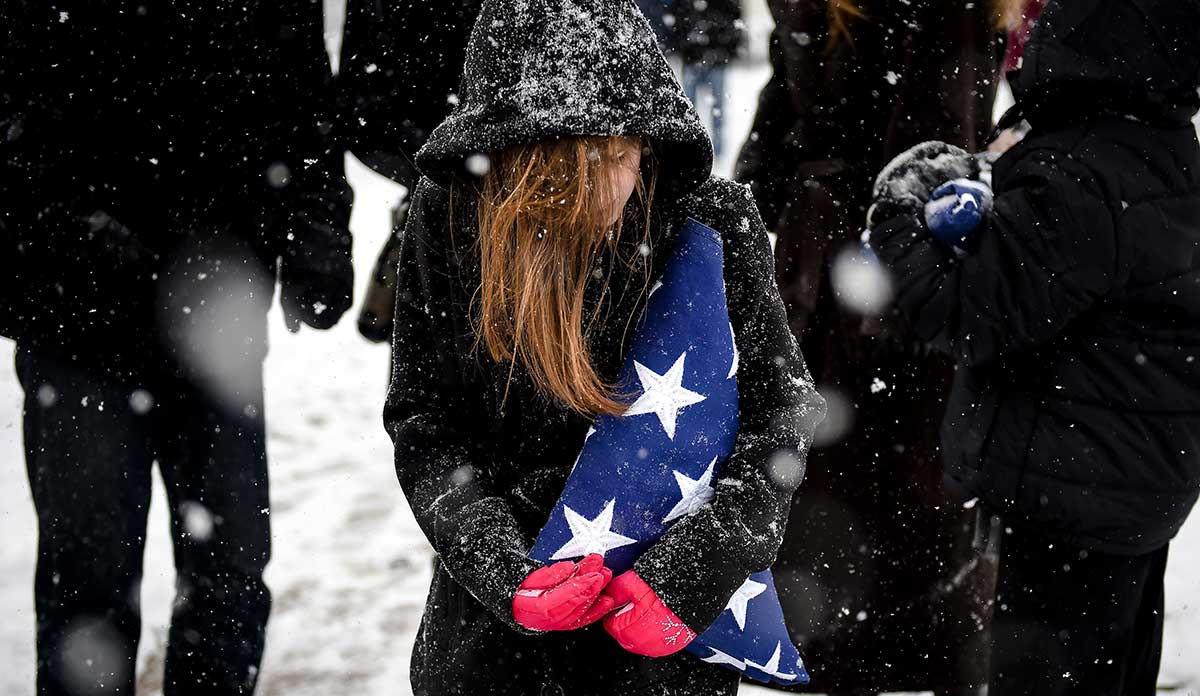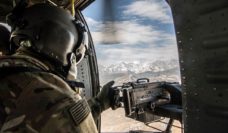April is the Month of the Military Child, which serves as an opportunity to honor the sacrifices military children make on behalf of our nation. Sadly, military duty-related deaths are included in those sacrifices. Of the 15,938 US military service members who died in the decade following 9/11, 85% died suddenly and violently. Such losses place military children and widowed spouses at higher risk for complicated grief, post-traumatic stress disorder (PTSD), and depression, especially given that surviving family members are often young and separated from extended family.
Our team at the Center for the Study of Traumatic Stress conducted a study of bereaved military children and spouses to guide service providers to better address their health and well-being. Our published report described nearly 10,000 surviving military dependent spouses and over 12,000 bereaved military children of these deceased service members (DSMs). At the time of death, most DSMs and their spouses were in their early 20s while 55% of the children were under the age of ten, including nearly a third under the age of five. We identified a clear need for civilian and military health care and service providers, as well as policymakers, to recognize the experiences and challenges bereaved military families face.
At the time of death, most deceased service members and their spouses were in their early 20s while 55% of the children were under the age of ten, including nearly a third under the age of five.
Over half of these families lived further than 60 miles from a military installation, making it difficult for them to access support and services. Additionally, we reported that the children of DSMs who experienced a sudden and violent death were younger than children of DSMs who died from non-violent causes. While all deaths can be difficult for families, the unexpected nature of sudden and violent deaths often leads to intense and long-lasting psychological distress and grief symptoms. Although only a small minority of bereaved children are likely to develop a psychiatric disorder, death of a parent, especially when it is a sudden and violent death, can be particularly distressing for young children and lead to symptoms of anxiety, depression, and PTSD. Surviving spouses’ grief may further disrupt the care their bereaved children receive. In contrast to other sudden and violent deaths, combat-related deaths are often associated with a sense of meaning, military pride, and patriotism, which may help families better adapt to the loss.
Military and civilian service providers (including casualty affairs officers, chaplains and health care providers) must be better educated about bereaved military children and spouses—who they are and what challenges they face—in order to improve their access to culturally competent clinical and social services. There is a national imperative to honor and respect the sacrifices and bravery of our military children and families. The Month of the Military Child provides an opportunity to reflect on their strengths, sacrifices, and needs, while emphasizing the importance of our continued collective efforts to shape intervention and support strategies that promote their health and resilience.
The authors would like to thank Bilal Ali for his contribution to this article.
The opinions and assertions expressed herein are those of the authors and do not necessarily reflect the official policy or position of the Uniformed Services University or the Department of Defense.
Feature image: AP Photo/The Colorado Springs Gazette, Michael Ciaglo. © 2018 The Associated Press. Katie Baylett, 9, grasps onto a folded flag as heavy snow falls after a Veterans Day memorial service for her father, retired Special Forces soldier Randall Baylett, 45, Tuesday, Nov. 11, 2014 at the Memorial Park Veterans Memorial in Colorado Springs, Colo. Baylett, who passed on Friday, Nov. 7, retired from the Army after 22 years and multiple deployments including Operation Desert Storm and Operation Iraqi Freedom.














